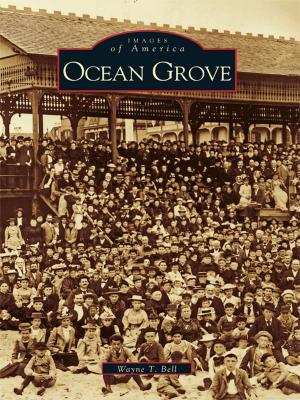Legendary Locals of Moline
Nonfiction, Art & Architecture, Photography, Pictorials, Travel, United States, History, Americas| Author: | David T. Coopman | ISBN: | 9781439655924 |
| Publisher: | Arcadia Publishing Inc. | Publication: | April 18, 2016 |
| Imprint: | Legendary Locals | Language: | English |
| Author: | David T. Coopman |
| ISBN: | 9781439655924 |
| Publisher: | Arcadia Publishing Inc. |
| Publication: | April 18, 2016 |
| Imprint: | Legendary Locals |
| Language: | English |
David Benton Sears could be considered the father of Moline, Illinois. It was upon his land that Moline was platted in 1843. It was because of his brush dam on the Mississippi River between the Moline shore and Rock Island--known today as Arsenal Island--that significant industry began to develop. Grain and lumber mills were the first, but farm implement and related factories soon found prominence after John Deere moved his plow-making business here in 1848. It would not be long before immigrants, particularly the Swedish, Belgian, and German, were drawn to Moline for the jobs and opportunities and added to the growing and prosperous population. Legendary Locals of Moline tells the known and not-so-well-known stories of many of the early and the more-recent individuals who have contributed to the fabric of the community, both locally and nationally. Historical and current photographs illustrate those who affected business and industry, culture, academia, public service, organizations and philanthropies, and sports and entertainment.
David Benton Sears could be considered the father of Moline, Illinois. It was upon his land that Moline was platted in 1843. It was because of his brush dam on the Mississippi River between the Moline shore and Rock Island--known today as Arsenal Island--that significant industry began to develop. Grain and lumber mills were the first, but farm implement and related factories soon found prominence after John Deere moved his plow-making business here in 1848. It would not be long before immigrants, particularly the Swedish, Belgian, and German, were drawn to Moline for the jobs and opportunities and added to the growing and prosperous population. Legendary Locals of Moline tells the known and not-so-well-known stories of many of the early and the more-recent individuals who have contributed to the fabric of the community, both locally and nationally. Historical and current photographs illustrate those who affected business and industry, culture, academia, public service, organizations and philanthropies, and sports and entertainment.















